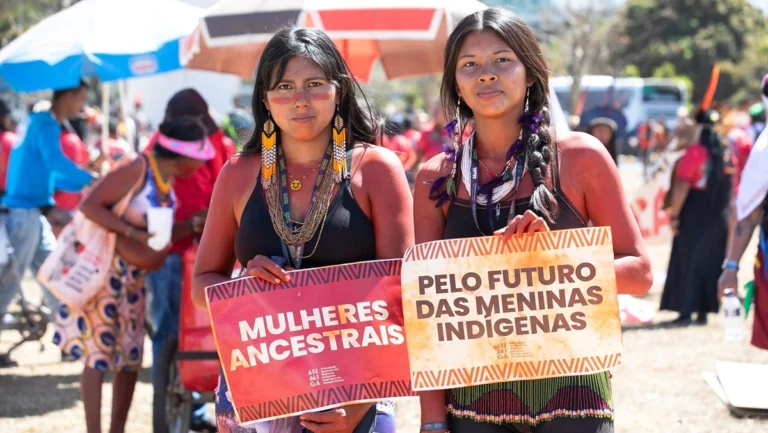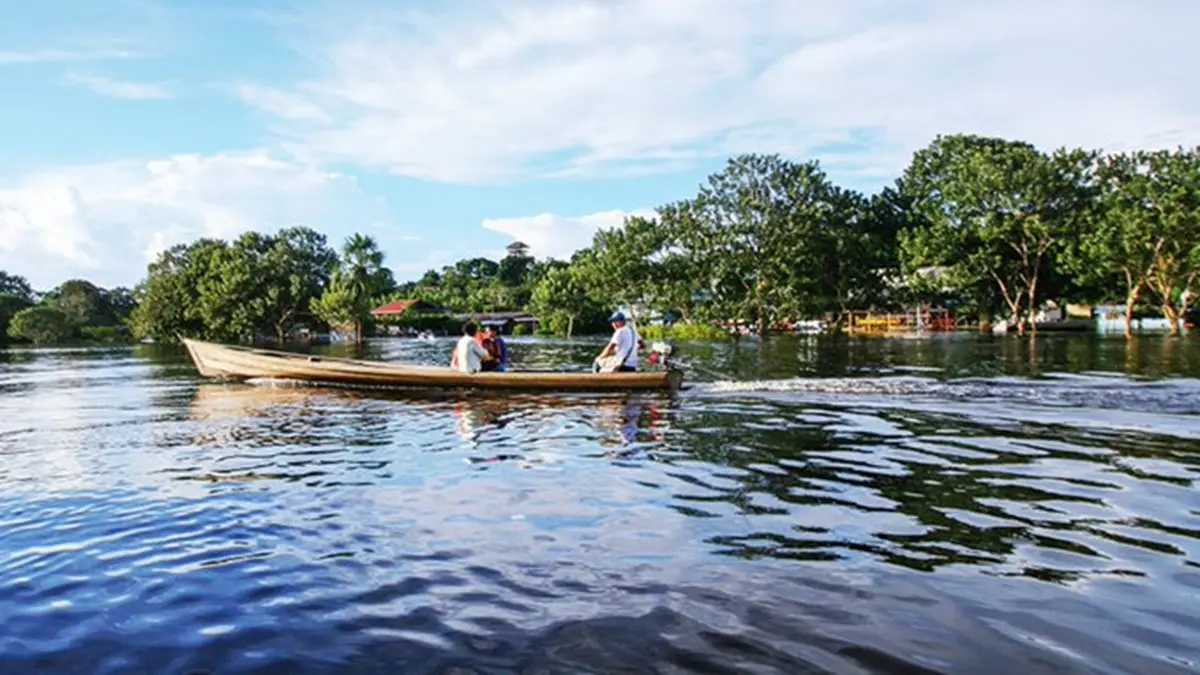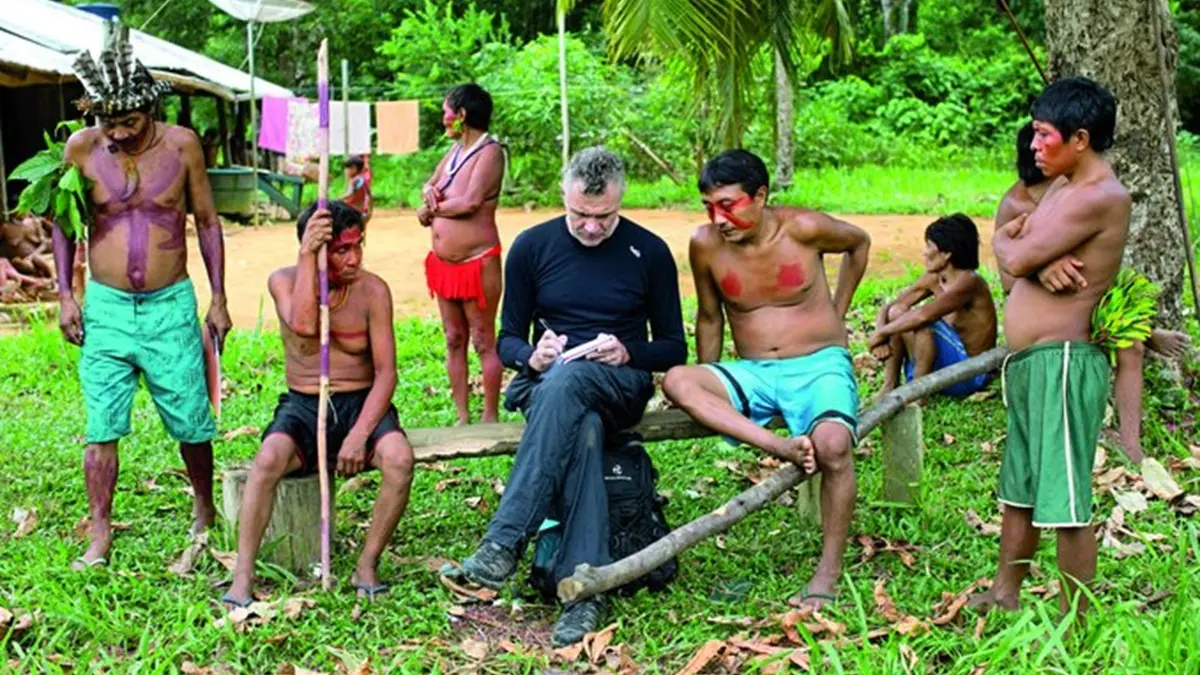Brazilian Indigenous Women March Demanting Reproductive Health Access and Land Rights

Signs read, “Ancestral Women,” and “For the Future of Indigenous Girls,” Brasilia, Brazil. Aug. 7, 2025. X/ @PTnaCamara
August 7, 2025 Hour: 1:11 pm
‘Demarcation is a guarantee of our life, our existence and our security,’ Chief Xipaia said.
On Thursday, Indigenous women protested in Brasilia for the sixth consecutive year against gender-based violence in their territories and in favor of better access to reproductive health services.
RELATED:
Ecuadorian Indigenous Peoples Criticize Noboa’s Draft Bill on Protected Areas
“Femicides have increased absurdly,” said Chief Juma Xipaia, who also serves as Secretary of Coordination and Promotion of Indigenous Rights in the administration of President Lula da Silva.
“Violence against women has worsened in Indigenous territories across Brazil, not only in those invaded by illegal mining,” said the Indigenous leader, who is from the state of Para in the Amazon region.
Although the Lula administration granted legal protections to three new Indigenous reserves on Wednesday, the Indigenous women demanded faster progress in the demarcation of ancestral lands to improve their communities’ safety.
“Demarcation is a guarantee of our life, existence, and security,” Xipaia emphasized, noting the environmental benefits that come with it, as Indigenous territories tend to have lower rates of deforestation than other areas.
The text reads, “This morning, the streets of Brasilia were occupied by the 6th March of Indigenous Women. Under the slogan ‘Our Body, Our Territory: We Are Guardians of the Planet for the Healing of the Earth,’ the women marched in defense of their rights, life, and Mother Earth. The 6th March is a collective call for a more just, balanced, and sustainable world, where ancestral knowledge is respected and valued as a path to the healing of the planet.”
The march in Brasilia was also marked by criticism of a bill that weakens environmental licensing requirements for infrastructure projects, a measure seen as a serious setback for efforts to combat deforestation and climate change. Approved last month in Congress with support from the agribusiness sector, the protesters urged President Lula to veto the bill.
In the days leading up to the march, 5,000 Indigenous women from more than 100 ethnic groups gathered at a national conference that concluded with the release of a document outlining a series of proposals directed at the Brazilian government.
Among the proposed measures are greater female participation in the management of public funds and decision-making spaces, as well as the creation of a network of assistance centers for Indigenous women, including shelters for survivors of gender-based violence.
The document also calls for action against obstetric violence and the recognition and valuing of traditional birthing practices, including the official recognition of midwives and other Indigenous specialists as health professionals.
teleSUR/ JF
Source: EFE






